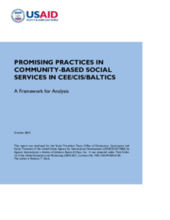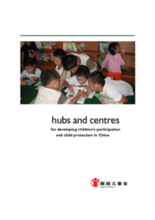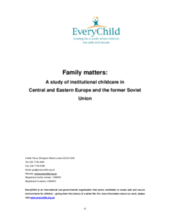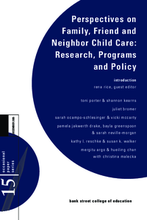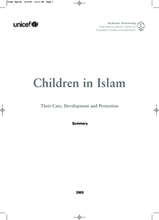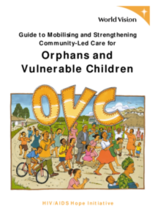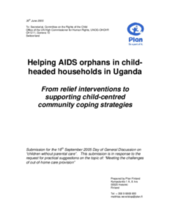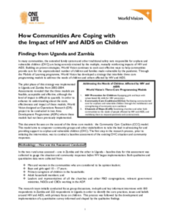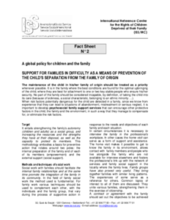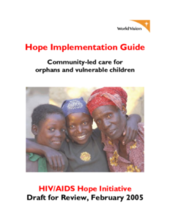Displaying 261 - 270 of 303
Provides a framework for analysis of community-based social welfare services and linkages with government structures. Includes analysis of alternative care provision, de-institutionalization, programming for children with disabilities, standards of care, and overall social welfare sector reform.
Focuses on the general principles and actions for developing children’s centres in China. Centres would help initiate national child protection services and children’s participation.
A report discussing the advent and perpetuation of institutional care in Central and Eastern Europe and the Former Soviet Union prior to and since the end of the communist regime. It also provides examples of family-based care as models of care to substitute institutional care and offers recommendations to donors, NGOs and governments for child care reform based on their experience in CEE and FSU.
A series of papers examining kinship care options and programs in the US which address low socio-economic status, culturally appropriate care, exemplary models of kinship care, and public policy.
An overview of child rights and protection as it relates to the central tenets of Islam. Contains brief information on alternative care, children affected by HIV/AIDS, protection from abuse, and other issues.
Comprehensive toolkit and resource pack for mobilising community-led OVC care. Includes detailed resources for training home visitors.
Practical suggestions for supporting AIDS orphans in child-headed households based on experiences in Uganda. Includes lessons learned and key recommendations.
Assessment of pilot programs employing World Vision Community Care Coalition model in Uganda and Zambia.
Brief summary of the importance of social work in preventing family separation, including increasing empowerment, social support and self-assessment processes.
Detailed guidance on implementation of programs for OVC care. Includes list of technical resource contacts. Complement to the World Vision ADP Toolkit for HIV/AIDS Programming.

